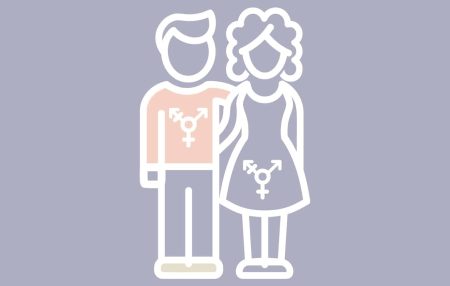27 January 2023
The start of 2023 provides renewed opportunity to reflect on future goals, personal relationships and family plans. The decision to have a child is a big step and the journey to parenthood can be long and complex, especially when it involves assisted conception. This makes it important to plan ahead, make informed decisions and put together a viable action plan.
Family Building Issues
Options for starting a family have widened over the last twenty years thanks to advances in assisted reproductive technology, law reform and changes in societal attitudes. Ongoing trends in later-life parenthood are leading to greater focus on fertility preservation and maximization. Increasing numbers of people are turning to fertility treatment, surrogacy, known and identity-release donation as well as co-parenting arrangements. In addition, the nature and character of family life is changing, with greater prevalence of solo, same-sex, transgender and blended families.
However, it is not all plain sailing. There is currently no international harmonisation of assisted reproduction law. This can create all sorts of complications and issues including legal parentage gaps, problems with birth certificates and a lack of legal parental responsibility powers for parents when patients cross borders for fertility treatment or have international dimensions to their lives. Family building expectations can also challenge existing legal frameworks, causing complications and difficulties in practice, Furthermore, fertility treatment does not guarantee conception or delivery of a much-wanted child, with reducing prospects of success due to age-related fertility decline.
Top Tips for Family Building
The complexity of modern life and challenges associated with assisted conception and family creation mean it is very important to proactively manage family building arrangements. My top tips are:
- Check, preserve and maximise individual fertility (e.g. fertility testing, egg and sperm freezing, embryo creation where appropriate).
- Consider genetic aspects of family building (e.g. genetic screening, genomic medicine and genetic identity issues where donor gametes are used).
- Take care of your health and identify any medical issues or symptoms early to get the best treatment and outcome.
- Think carefully about the shape and size of family to be created.
- Review personal finances and budget carefully for fertility treatment, family creation and raising a family.
- Create a viable family building action plan, don’t leave family building to chance.
- Get expert legal advice on the issues and outcomes associated with fertility treatment, family building and modern family life (e.g. storage and use of gametes and embryos, legal parentage, parental responsibility, birth certificates, arrangements for the care and upbringing of children). Don’t just assume you will have the relevant legal rights and protections in practice.
Fertility and Family Law
Bespoke expert fertility and family law advice helps effectively navigate your family building journey. It enables you to identify, understand and manage a range of legal and practical issues and risks, place your family building and life on a firm basis and get the best outcome. In doing so, it can address:
- Acquisition of legal parentage following a domestic or international surrogacy arrangement.
- Acquisition of legal parentage following a known donor arrangement.
- Acquisition of legal parentage following a co-parenting arrangement.
- An application to bring or defend a Declaration of Parentage (e.g. following a direct-to-consumer DNA test or to re-register a birth certificate).
- An application to bring or defend a step parent adoption order.
- An application for an order to recognise a foreign adoption under English common law.
- Unexpected death of a loved-one and related issues associated with posthumous storage and use of eggs, sperm and embryos in fertility treatment (e.g. due to an accident, illness including Covid-19).
- Care and upbringing of children following a dispute with an ex-partner, parent, donor, surrogate or family member.
- Legal issues and options where women face rapidly declining age-related fertility and loss of opportunity for conception (e.g. fertility preservation and maximisation, management of existing personal relationships and implications of using donor gametes).
- Delays in medical diagnosis and consequent treatment and associated impact on individual fertility.
- Difficulties with storage and use of frozen eggs, sperm and embryos in fertility treatment in the UK (e.g. lack of consent and expiry of storage terms).
- Issues associated with import of frozen gametes and embryos into the UK for use in fertility treatment and surrogacy (e.g. due to anonymous and commercially obtained gametes and embryos which engage UK public policy restrictions).
- Issues associated with the export of frozen gametes and embryos abroad for use in fertility treatment and surrogacy (e.g. lack of consent and storage term difficulties).
- Legal parentage disputes with an ex-partner, donor, co-parent, step-parent, surrogate.
- Legal parentage disputes with a UK fertility clinic (e.g. problems and omissions with HFEA consent forms).




